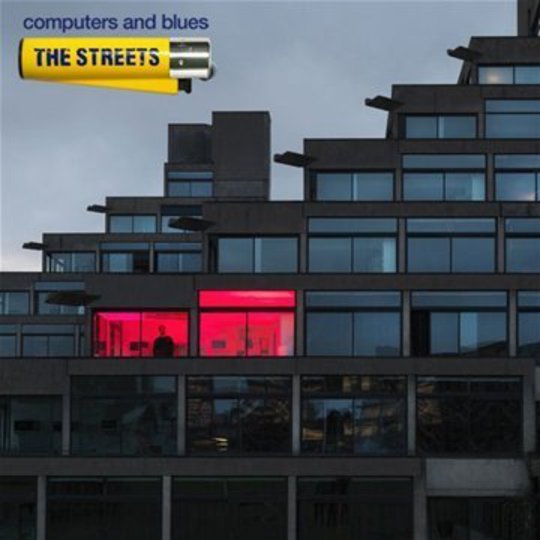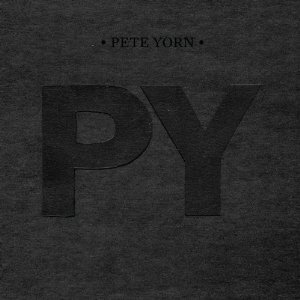Three immediate and profound musical truths spring to my mind. Firstly: Tom Waits has never released a bad album. Secondly: The Saturdays are fucking appalling. And thirdly; if you mention The Streets to anyone who has a passing interest in them, at least 85 per cent will furrow their brow, hitch up their pants and mutter something along the lines of 'Well, I loved their first couple of albums'.
It’s an easy statement to make. But one painfully close to the truth. It’s hard to remember back to July 2004 when ‘Dry Your Eyes’ was number one in the charts and Skinner was everyone’s favourite Burberry Baudelaire. See, the first two Streets records were exceptional: a genre-redefining pick ‘n’ mix of urban beats and witty, incisive street poetry about everyday life. But they were done with such intelligence, charm and guile (and a certain Midas touch to make things work that really shouldn’t have), that it was difficult not to be enamoured by them. But with mainstream adulation and attention gathering storm, Skinner had effectively constructed his own gallows. To continue with the same blueprint of pills, thrills and heartaches, he would have been lambasted as a one-trick pony. And if he chose to stray from this path, he risked alienating his core audience. So he initially decided to keep his feet in both camps, meaning that 2006’s The Hardest Way to Make an Easy Living was a puzzling combination of pitiful paranoia and unconvincing braggadocio-laden metaphors. And then, just like the effervescent bloke down your local who becomes mute when he’s the designated driver, Skinner simply ran out of things to say.
His long-proclaimed final album: Computers and Blues, continues down the same frustrating pathway as the two previous records. Firstly, the good news: It’s a pleasure to say that the sound of the album is great. In choosing to record, as opposed to sample the backing tracks, it contains a warmth and personality which has been notably lacking from his recent work. Skinner sounds happy; he sounds content in his world and this thoughts. You can perfectly visualise the transition from wayward youth to mature adult in the touching ‘Blip on a Screen’ where Skinner ruminates on his upcoming fatherhood. And with a clear nod towards modern beats and tastes, he ramps up the soul vocal samples to the maximal trembling capacity to add colour behind his idiosyncratic mumblings (Clare Maguire and Robert Harvey assisting in this capacity).
Sadly, the lyrical content is for the most part, utterly trite. He’s still purveying the same old beermat philosophy. Admittedly, it’s hard to see what’s so different to what got everyone excited back in 2002. The problem is we’ve become too used to it: familiarity breeds contempt. ‘Puzzled By People’ for example, a song about contrasting human behaviour and crosswords is full of intelligent, clever wordplay. But we’ve heard it all before. ‘OMG’ sees him spending four minutes describing viewing a girl's Facebook page; with the sorrow of finding she’s in a relationship tempered by the revelation that… wait for it… she’s invited him into a relationship with her! Praise be.
Skinner may have surgically skewered the early-nNoughties club generation with exquisite precision, but his attempts to find the touchstone of the social network era are cringingly unconvincing. His lyrics, once his greatest strength, have become his Achilles Heel. The whole project spins to a close on 'Lock the Locks' which is (yes, you guessed) about leaving somewhere that’s memorable to you for the final time. An easy metaphor but one that Skinner used to twist to his advantage. Here however, the whole thing simply fizzles out with no joy, celebration or hubris. It’s a sadly underwhelming end to the album, in many ways a microcosm of his career.
It might sound churlish and ignorant to compare the album to Skinner’s earlier work but it’s acutely necessary. His legacy is built on his first records and he hasn’t particularly changed his modus operandi since then. Therefore, his earlier brilliance has to be seen as a mirror for comparison. And unfortunately, the person in the mirror is tired, bored and just wants his bed.
Computers and Blues, ultimately, just passes the test with a studious recount. It is neither atrociously bad nor staggeringly good: no stand-outs, no teeth-clenching clunkers. It is just okay. It is however a superior album than 2008’s wayward and irritating Everything is Borrowed so if nothing else, Computers and Blues manages to at least end the story on one positive note. The Streets may be missed in hearts, but certainly not in minds. Mike Skinner delivered on his promise to “Push things forward”. The only problem was, there was only so far you could push it, like trying to reposition a corner-unit sofa in a studio flat. However, I’d always prefer an artist to burn out after a couple of works of brilliance rather than purvey a career of perennial mediocrity. He’s been of vital importance in infiltrating black bass culture into the mainstream and he’ll go down as one of the most enigmatic artists of the past decade. But it’s the right time to end it, there’s simply nothing more to say. So long Mike, and thanks for all the brandy.
-
5David Edwards's Score






















